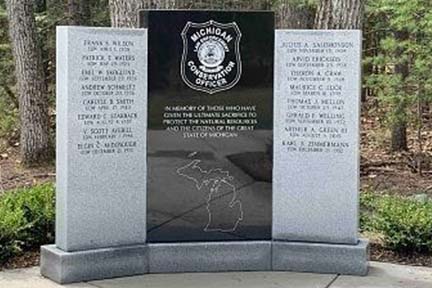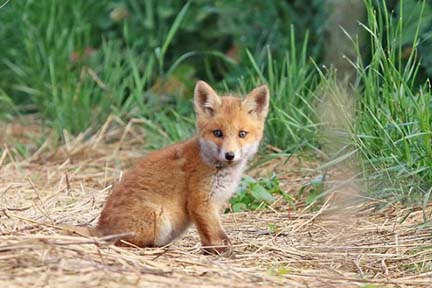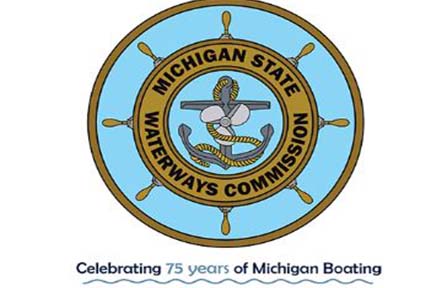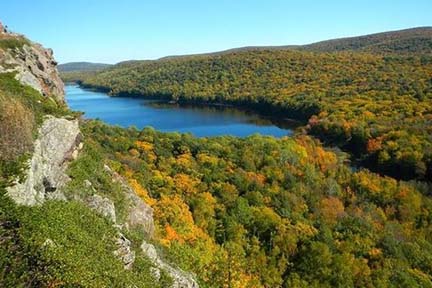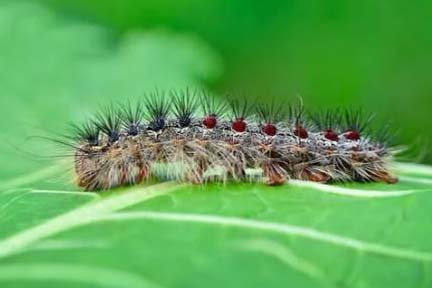| May 12, 2022
Media contacts:
For questions on wild birds or mammals: Eric Hilliard (DNR), 517-281-5607
For questions on poultry or domestic birds: Jennifer Holton (MDARD), 517-284-5724
Highly pathogenic avian influenza confirmed in three red fox kits from Lapeer, Macomb and St. Clair counties
The Michigan Department of Natural Resources received confirmation Wednesday evening that three red fox kits died from highly pathogenic avian influenza – the state’s first such confirmation of the HPAI virus in wild mammals. The fox kits, collected between April 1 and April 14, came from three separate dens in Lapeer, Macomb and St. Clair counties.
The DNR had received a report from a wildlife rehabilitator in southeastern Michigan about the fox kits exhibiting neurologic signs of HPAI before death. The kits were observed circling, tremoring and seizing. Two of the three died within hours of intake, while one appeared to respond to supportive therapy but then died in care. Interestingly, an additional kit that was a sibling of the Macomb County kit did survive, but developed blindness, making her non-releasable. This kit will be housed at a local nature center.
Highly pathogenic avian influenza is a virus known to affect birds throughout North America, with detections in backyard flocks and commercial poultry facilities, to date, in 34 states and detections in wild birds in 35 states. HPAI is highly contagious and poultry are especially vulnerable. In addition, this viral strain also affects waterfowl, raptors and scavengers (like turkey vultures, eagles and crows).
In Michigan, HPAI has been confirmed in 69 wild birds, with the outbreak continuing to spread throughout North America. Follow the current status of HPAI in Michigan at Michigan.gov/BirdFlu and Avian influenza updates (Michigan.gov).
The three fox kits were sampled for HPAI at the DNR Wildlife Disease Lab and submitted to the Michigan State University Veterinary Diagnostic Laboratory for testing. All three kits tested “non-negative” (presumptive positive) on May 6 and were confirmed positive by the National Veterinary Services Lab in Ames, Iowa, on May 11. The virus was detected in swabs collected from the nose, mouth, throat and brain tissue of all three kits, and a full postmortem examination was conducted to aid in learning more about this disease in foxes.
The DNR Wildlife Division continues to collaborate with many partners within the state and across agencies to share findings.
HPAI in red foxes outside Michigan
These cases in Michigan are not the first confirmed detections of HPAI in red foxes:
“HPAI H5N1 viruses may occasionally transmit from birds to mammals, as occurred in these cases, and there may be additional detections in other mammals during this outbreak, but they likely will be isolated cases,” said Megan Moriarty, the state wildlife veterinarian with the DNR. “At this point, it is unclear how the fox kits became infected, but it’s possible that they were exposed by consuming infected birds, such as waterfowl.”
Reporting sick or dead wildlife
Anyone who notices what appears to be unusual or unexplained deaths among wild birds or sick, dead or neurologically abnormal foxes is asked to report the information by:
Moriarty encouraged the public to continue sharing such wildlife observations, even though the DNR will be unable to respond to every person submitting a report.
“We greatly appreciate the effort to report instances of animals that are sick or appear to have unusual or unexplained deaths, because those tips often lead to important information,” said Moriarty. “Every bird or animal reported may not be tested for HPAI, but all observations are important.”
Highly pathogenic avian influenza primarily affects birds, but it is important to remember that it can be a zoonotic disease (one that has the potential to be transmitted from domestic or wild animals to humans). According to the U.S. Centers for Disease Control and Prevention, the public health risk associated with HPAI remains low, but advises people to avoid handling any sick or dead wild birds. If it is necessary to move a dead bird, use a plastic bag or shovel to do so and thoroughly wash your hands afterward.
HPAI in domestic flocks
Highly pathogenic avian influenza is highly contagious and can be spread to domestic flocks by wild birds, through contact with infected poultry, by equipment, and on the clothing and shoes of caretakers. Make sure domestic poultry (e.g., chickens, turkeys, geese and ducks raised for the production of meat or eggs) is separate from and has no contact with wild birds.
The Michigan Department of Agriculture and Rural Development stated that no birds or bird products infected with HPAI will enter the food chain. As a reminder, all poultry and eggs should be handled and cooked properly, with a safe cooking temperature of 165 degrees Fahrenheit.
Domestic bird owners and caretakers should watch for unusual deaths, a drop in egg production, a significant decrease in water consumption or an increase in sick birds. If avian influenza is suspected, immediately contact MDARD at 800-292-3939 (daytime) or 517-373-0440 (after hours).
For more on highly pathogenic avian influenza, visit the U.S. Department of Agriculture’s HPAI webpage or the state of Michigan’s HPAI webpage at Michigan.gov/BirdFlu.
Note to editors: An accompanying photo is available below for download. Caption information follows. Credit: Michigan Department of Natural Resources.
- Red fox kit: A healthy red fox kit in a grassy Michigan forest.
|
